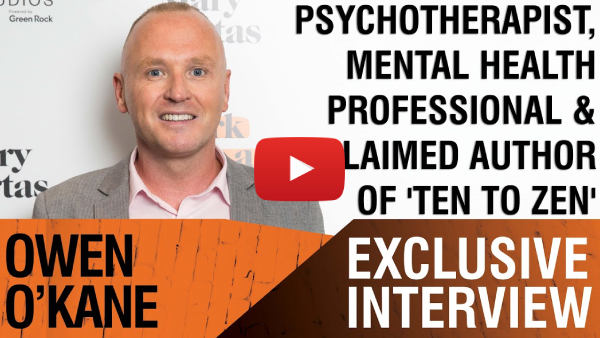Mental health affects us all, yet stigma remains a major barrier to support. In England, 1 in 4 people experience a mental health problem each year, while 1 in 5 have suicidal thoughts. Despite this, misunderstanding and fear persist, preventing open conversations. Tragically, those with severe conditions die 10 to 20 years earlier than the general population. Breaking the stigma starts with awareness, compassion, and ensuring mental health is treated as seriously as physical health.
Sources: Mind & World Health Organisation
The Top 10 Ways to Reduce Mental Health Stigma:
1. Talk Openly About Mental Health
The first step to normalising illnesses like depression and anxiety is to unapologetically open an honest discussion about how it affects us, it is everyone’s responsibility to talk about mental health as if it were the common cold. Some awkward topics can be demoted to hushed whispers, but all that does is build the subject up to be scarier than it is. There is nothing to fear about mental health, it is as common as the flu, so talking candidly can help to reduce that stigma.
Listen to our exclusive interview with Dr Alex George, the UK Youth Mental Health Ambassador, in which he discusses the importance of encouraging open conversations on mental health:

2. Be Aware of Your Own Attitude
When someone admits that they have an upset stomach, it is common to sympathise with them as it is assumed to be completely out of their control - however, this isn’t the case for mental health illnesses. Whether we invalidate our own struggles or the emotions of those around us, we ultimately devalue the devastating effects mental health problems can have. Strives need to be made to empathise with sufferers, and ourselves, if we ever wish to normalise the illness. This can include listening to each other, being kinder to ourselves and understanding that a mental health sufferer has limited control over what they are feeling without help.
3. Educate Yourself & Others
Little is done to educate society on what mental health can actually mean, the different kinds of illnesses and what needs to be done to lessen the effects - for example, there is so much more to OCD than simply being “afraid” of germs, in some cases, germs aren't even a part of the problem. In order to learn about the true effects of mental health issues, we need to educate ourselves on what that actually means and understand the different internal and environmental causes. With such an understanding, we can establish a more educated approach to mental health.
Listen to Ruth Cooper-Dickson discussing the importance of prioritising your mental health:

4. Learn from the Experts
Mental health and wellbeing speakers have dedicated their careers to eradicating mental health stigma. Whether they have experienced such illnesses themselves, supported a sufferer or are psychologists in the field, their positive impact can open people's eyes to the damaging effects of social perceptions. These speakers are booked for a wide range of events, from private corporate workshops to public industry events, a testament to their message of hope and understanding. For businesses, wellbeing speakers can unite a team under one common goal - acceptance and support.
5. Listen to Those Around You
When a friend or family member admits that they are struggling, we as a society need to listen; void of judgement and preconceived assumptions. The conversation needs to be welcoming, as it is important to create a safe space for people to share their feelings openly. This may include meeting in a private location, avoiding interrupting them and taking what they say as fact without insinuating that they are “making it up” or “overreacting”. It takes a lot of courage to talk about what makes us vulnerable, but with the right encouragement, we can validate mental health.
Listen to our exclusive interview with mental health experts, Jonny Benjamin and Neil Laybourn, in which they discuss tackling the workplace mental health crisis:

6. Be Conscious of Your Language
Both sufferers and their loved ones alike are guilty of using phrases like “crazy”, “I’m so OCD/depressed” and “you’ll be fine”, which only invalidates mental health illnesses. By throwing around such phrases, the life-changing effects of illnesses like OCD and depression have weakened meanings, resulting in a guarded discussion that has less of an impact on the unsympathetic, ingrained view of mental health. Ultimately, mental health symptoms need to be taken more seriously, and not be used as a tool of common description.
7. Stop Making Excuses
At some point in our lives, we will find ourselves in a position where we have committed to plans that we simply can’t make - not because we are lazy or unsociable, but because leaving the house feels unbearable. Rather than lying about your car having a flat tyre, be honest about what is stopping you and why it is important that you prioritise your mental health. Your friends and family will most likely be unhappy about not seeing you, but they should understand that if you could honour social commitments, you would do so. A balance needs to be made between pushing ourselves out of our comfort zone to maintain friendships and being honest about how mental health illnesses affect us on a daily basis.
Listen to Ruby Wax discussing the reality of mental illness:

8. Embrace Therapy or Medication
There is no shame in asking for help, in whatever form that may come in. It is common for people to look down upon mental health medication, or stereotype therapy as a waste of time, however, for mental health sufferers, it can be the difference between life or death. Though exercise and a healthy diet do improve our overall wellbeing, it is difficult for some sufferers to leave the house and go to the gym in the first place without medical or professional help. Similarly to relying on an inhaler for Asthma, some mental health sufferers need help in order to function in society.
Listen to this interview with Owen O'Kane, a leading expert on the benefits of therapy:

9. Include Everyone
For millions of mental health sufferers, having to discuss their illness in a vulnerable environment, for example at work, can be incredibly daunting - but it is important when ending the stigma. From a day at the spa to starting a new job, it is common for some types of contracts to ask about an individual's disabilities, though this doesn’t define us as people. Though it feels like a sign of weakness, under the Equality (Disability) Act of 2010 people who suffer from mental and physical disabilities, including long-term mental health issues, are protected from the kind of discrimination such honesty can produce.
10. Understand Your Rights
The Equality Act 2010 -
As aforementioned, this act protects those living with long-term mental and physical conditions against discrimination when they are; at work, applying for a job, made redundant or dismissed, buying, renting or living in a property and are in education.
Source: GOV.UK
The Mental Capacity Act 2005 -
This act offers support to those whose mental health is preventing them from making decisions. Help is based on an assessment of the sufferer's mental capacity and can include appointing an attorney or making an advance decision on health care/treatment.
Source: NHS
The Mental Health Act 1983 -
Updated in 2007, this law informs mental health sufferers of their rights regarding assessment and treatment in hospital, treatment in the community and pathways into the hospital. Under this act, sufferers and their families are protected from injustices.
Source: NHS
If you or someone you love is exhibiting extreme symptoms of negative mood, erratic behaviour and low self-care, then find professional care immediately. For more information, please contact a mental health charity like Mind at 0300 123 3393.
Hire a Mental Health & Wellbeing Speaker Now!

Alternatively, if you would like to hire a mental health speaker to help improve workplace mental health, contact the Champions Speakers agency by filling in our online contact form or by calling a booking agent directly on 0207 1010 553.
This exclusive article on the top 10 ways to reduce mental health stigma was authored by Lucy Berry, via official research collected from Mind, the World Health Organisation, GOV.UK and the NHS.
Champions Speakers' Standards: Champions Speakers Principles of Trust









